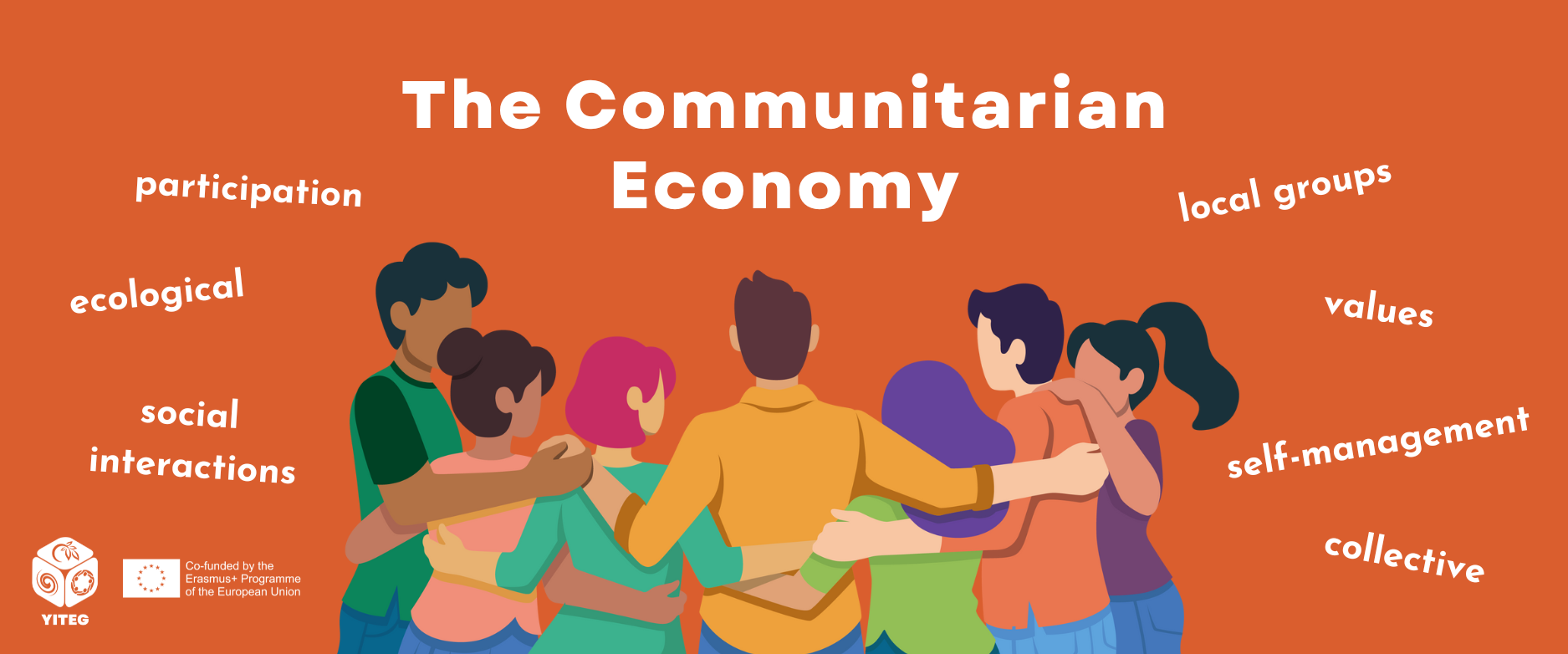With the YITEG project (Youth Impacting Transformative Economies through Game design), we want to put the light on the branch of the Communitarian Economy, as an alternative to the capitalist paradigm.
Overall, the Communitarian Economy refers to all activities that are developed without depending on the state or the market, i.e., through self-management. We refer to all those collective attempts aiming to satisfy needs and where the idea of belonging and participation in a community or group prevails. In short, the main idea is to fulfill the function of ensuring the material bases of life without any economic benefit. For example: a community garden, a food network, a time bank, a popular school, mutual support network etc.
This concept can refer to various initiatives and can be sometimes a bit complicated to grasp since it’s often similar to the Commons Economy in some aspects. To understand it better, you can consider that Communitarian Economies are generally supported by local communities that are also the main objective of development in this approach (whereas profit is one objective of Capitalism in comparison).
For these communities, social interactions and values are at the forefront of their project : that is why they can exclude any form of monetisation or hierarchy to better support social bonding activities, value promotion and establish community-orientated social goals. In this approach, people tend to promote activities where skills and competencies can be found within the community and invest in ways to support a better future for them (economic activities, transactions, but in a fairer and lasting way).
For example, creating a community garden is a means to share and have social interaction, to support values of community, to grow autonomy and participation, etc…
In this sense, the Communitarian Economy also takes into account the importance of the ecological realities that we are facing. More than investing in activities solely supporting their community, they also consider it from an environmental point of view. That is why, they usually contribute at a local level, with products and services heavily sourced.
Community economies researchers point out that the sense that’s put behind the word “community” must not be interpreted in a traditional sense : it does not refer to a shared identity or location. Instead, it’s more about a “chosen” community, about the process of being with others, including the world around. Every community acknowledging themselves in the Communitarian Economy is singular, because everyone of them apply their own social interactions and organisation to serve various objectives.
Examples of Communitarian Economies that you can find in our Transformative Economies multimedia map:
- Can Battlo (Barcelona – Spain)
- Sostre Civic (Catalonia)
- T’CAP TENCE (Tence – France)
- Artinsieme (Sarzana – Italy)
- Kafeneio at Plato’s academy (Athenes – Greece)
- Trophy.Lab (Athenes – Greece)
References:
Community Economies Research and Practice
Community-based economies (wikipedia page)

